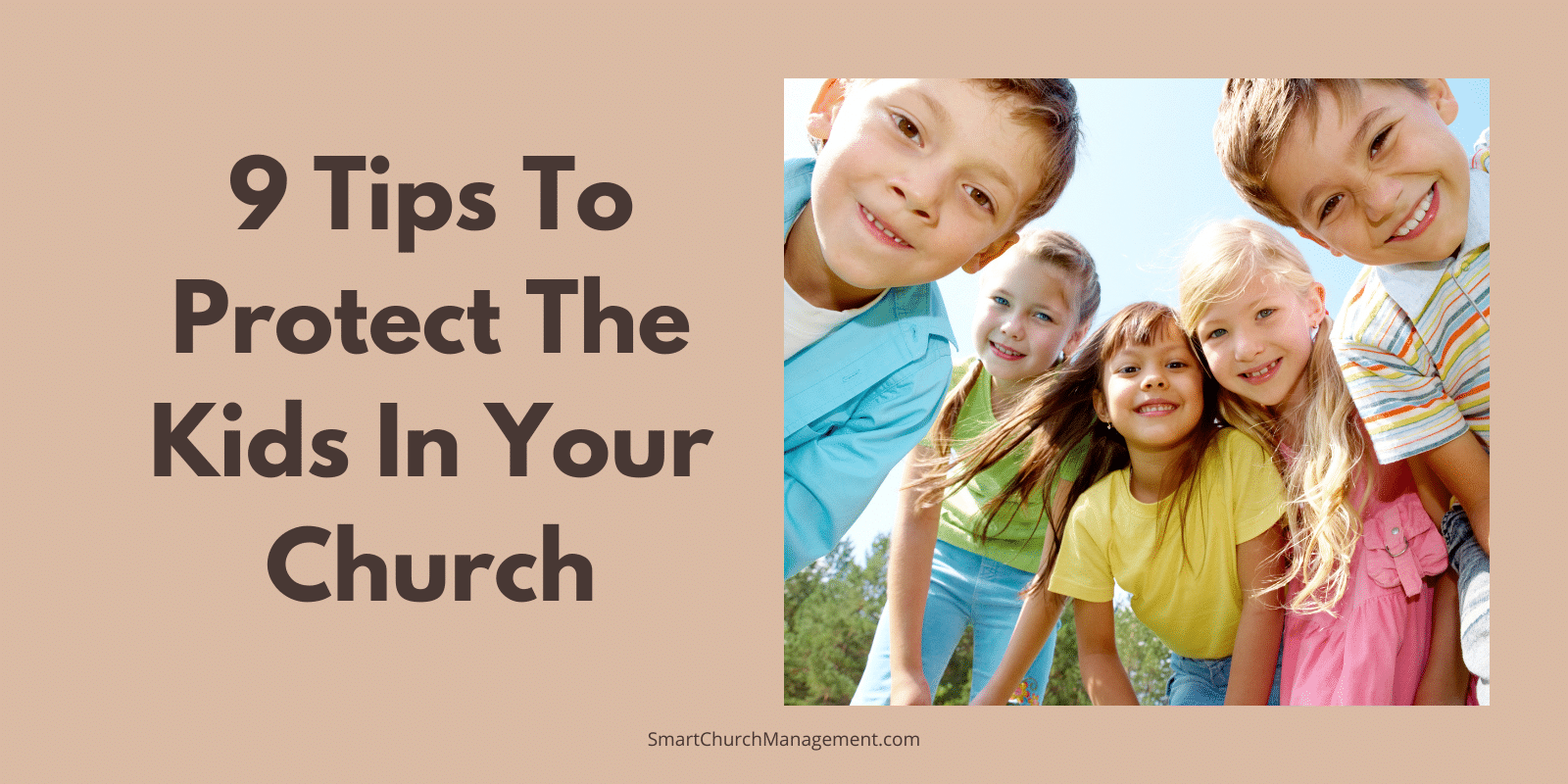Estimated reading time: 6 minutes
There was yet another disturbing report this week. A child was abducted from a church. My heart stopped as I read this story, which is every parent’s worst nightmare! Fortunately, the child was found safe!
Child abuse and church seem to be an all too common story on the news.
We all cringe when we hear of yet another accusation of a church or church representative who crossed moral and legal lines with a child.
In fact, the abuse of a minor remains the number one reason churches end up in court. It is our responsibility to protect kids in church.
We know these are horrific crimes because of the lifelong impact it has on many of these children. Not to mention an inaccurate perception of the church at large.
Sadly, I know people who have stopped attending church because of many abuse cases now documented and the church’s response to them.
As church leaders, it is our responsibility to ensure that those children in our care are valued and protected from those who intend to do harm.
Churches that provide a children’s ministry must take proactive steps to ensure that the children they minister to are safe and protected from would-be abusers.
9 Tips To Protect The Kids In Your Church
1. Control Access To Kid Areas
Child predators are slick. They prowl around looking for opportunities and vulnerabilities in places that have children present.
Do an audit of your kid areas and make sure there are protections in place to keep people out who don’t belong.
Churches have many tools for this. Use your Children’s sign-in process to provide badges for the kids and identification for parents.
Implement strict guidelines for someone other than parents (with custody) to pick up kids.
Get to know the families and be aware of people who don’t belong.
Use security or off-duty police officers to have a presence where kids are dropped off and picked up. Enforce a policy for those picking up children to show identification. Conscientious parents will thank you!
2. Help The Church With Awareness
Those of us who do church for a living are fully aware of the issues surrounding the abuse of minors in the church.
However, people within your congregation may not.
Make a point to speak from the pulpit about this disturbing cultural trend and what you and your team are doing to protect the kids in your care.

As difficult as these subjects are to talk about, help people understand that awareness is power.
These public statements will also give notice to any would-be abusers sitting among you that you are watching them.
3. Conduct Criminal Background Checks
Many churches do a background check on volunteers who work in children’s ministry.
However, I believe that all volunteers should be screened – not just those working with kids.
There is no doubt a cost to this. But the peace of mind that you would have knowing you did your part, to be aware of who is working with you – is worth the small financial investment.
4. Provide Abuse Awareness Training
Child abuse issues have been around for decades – meaning the church has learned a lot.
Invest the time and resources in training staff and volunteers on how to identify a would-be abuser.
Create a training program that can be used in volunteer orientation or have a professional abuse prevention speaker attend an annual volunteer event.
5. Write Policy For Children’s Ministry Volunteers
Children’s ministry volunteers should go through thorough training on all aspects of interacting with children.
Specifically, your expectations for the adult-to-child ratio. The two-person rule is a common policy that requires that no child is ever left alone with one adult, including when a child needs to use the restroom.
Include in your policy what the expectations are for reporting a suspected abusive situation. Be clear on the process of who, what, when, and how to report.
6. Children’s Ministry Oversight
It is always nice to have a team of competent volunteers who can teach the kids.
However, it is your responsibility to manage by walking around. Make it known that you will always be popping in and out of the kids’ rooms.
If you assign supervisors, have part of their responsibility to be constantly checking the kids, the workers and ensuring volunteers are following appropriate protocol.
7. Go With Your Gut
We all have that intuitive instinct that guides us. Call it gut or call it being led by the spirit; use those internal instincts and act on them.
I know a pastor friend who was sitting in a church service and got a sense that he needed to go to the children’s area.
He got up out of his seat in the middle of a church service, walked to the children’s room, and found a worker inappropriately alone with a child. He believes acting on that prompting may have saved that child from harm.
8. Disregard Familiarity
We often use teenagers to supplement a volunteer shortage. And while most of these teens provide great help and support, it is important not to allow familiarity to cloud judgment and oversight.
Familiarity is one of the biggest issues churches have with identifying would-be abusers.
It is just difficult to imagine a committed, God-fearing person could abuse a child. However, the fact is, 23% of predators are under the age of 18.
This is frightening, considering background checks reflect convicted criminal court cases after the age of 18. And often, a predator has countless victims before being caught and prosecuted.
Treat everyone who works with kids the same and enforce the same consistency with policy to ensure no one falls through the cracks.
9. Report Abuse
This is really hard for church leaders because it often means reporting one of our own. However, it is our responsibility to protect not only our kids – but all kids.
The offender may require other ongoing care from the church. However, ignoring abuse and allowing someone not to be held accountable can result in the abuse of another child somewhere else. No one wants to carry that burden – so report.
Our world seems to be in a very dark place, and the epidemic of child abuse is disturbing. As church leaders, it is our responsibility to ensure that those kids in our care have a safe place to be kids and learn about the greatness of our God.
Make a plan today to evaluate your screening, training, and oversight process to ensure your kids don’t fall victim to a child predator.
If you are an SCM member, you can access a child abuse policy and reporting form on your dashboard. If you are not a member and would like access to a child abuse reporting policy and form, click here.



